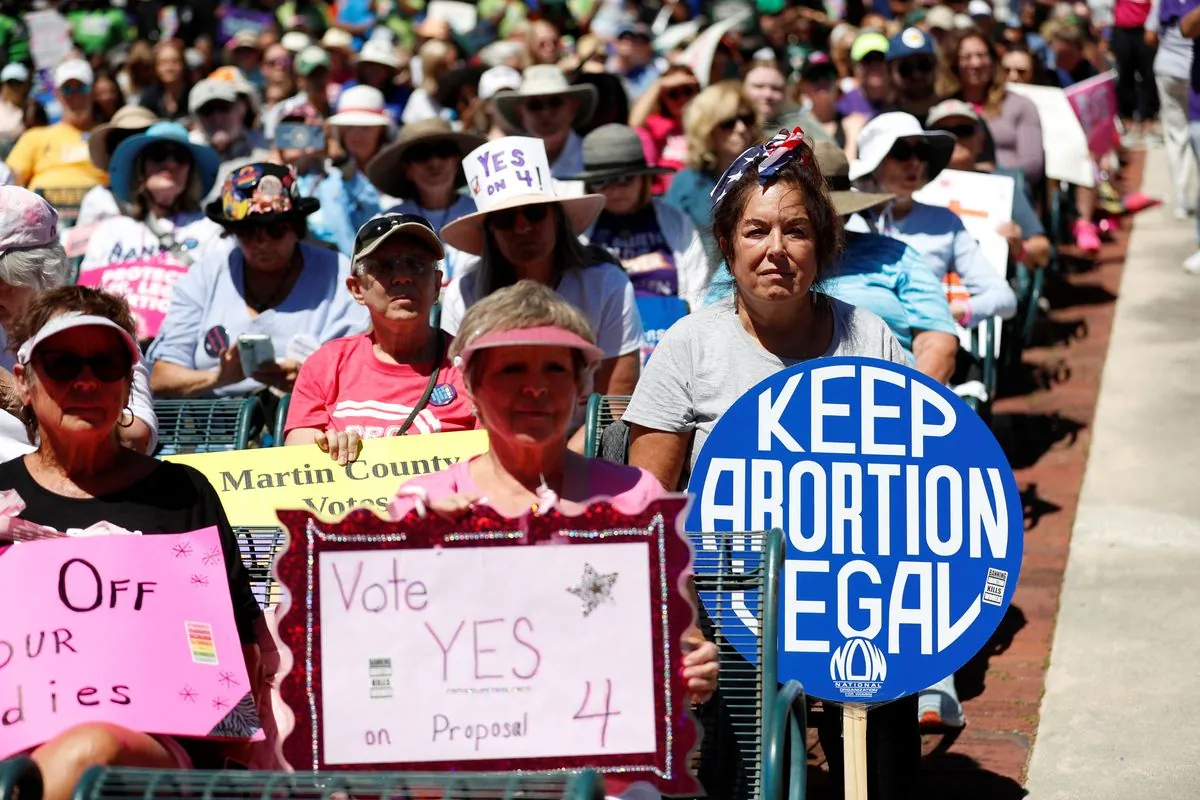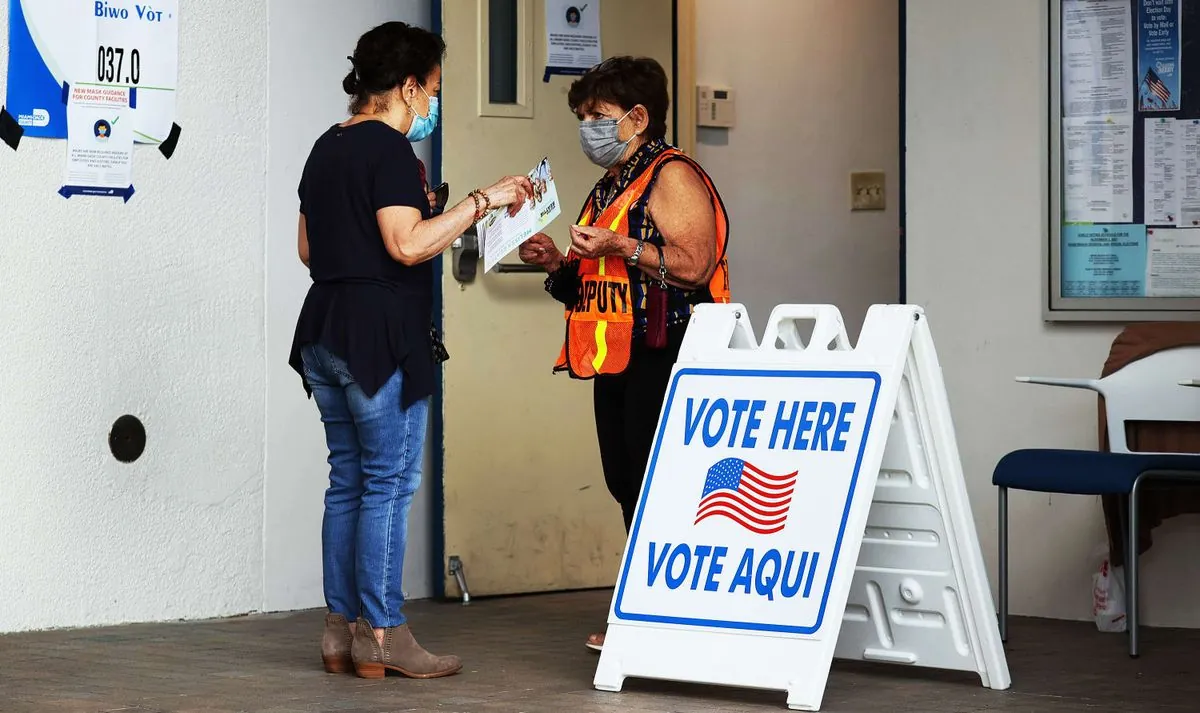Florida Democrats' Optimism Clashes with GOP's Financial Dominance in Senate Race
Florida Democrats claim competitiveness despite being outspent 4-to-1 by Republicans in the Senate race. Debbie Mucarsel-Powell challenges Rick Scott as national party focuses elsewhere, raising questions about the state's swing status.

In the Sunshine State, a political battle is unfolding that highlights the changing dynamics of Florida's electoral landscape. Democrats are expressing optimism about their chances in the upcoming Senate race, but their financial situation tells a different story.
Debbie Mucarsel-Powell, the Democratic challenger to incumbent Republican Senator Rick Scott, recently declared, "Florida is in play." However, this assertion contrasts sharply with the current spending patterns in the state. According to AdImpact data, Republicans have outspent Democrats by a significant margin of 4-to-1 in the Florida Senate race, investing $12.7 million compared to the Democrats' $3.2 million as of September 11, 2024.
This financial disparity reflects a broader trend in Florida's political landscape. Once considered a crucial swing state, Florida has been leaning more conservative in recent years. In 2020, Donald Trump secured a victory in Florida with a 3.3 percentage point margin over Joe Biden, further diminishing its status as a battleground state.
Despite the financial challenges, Democrats are pinning their hopes on several factors to boost their chances:
- Ballot amendments on abortion rights and marijuana legalization
- Grassroots campaigning efforts
- The nomination of Kamala Harris as the Democratic presidential candidate

Mucarsel-Powell believes these elements will energize the Democratic base and attract voters. However, Senator Scott remains skeptical, stating, "They are so far from what Florida voters believe in, that they don't have a chance in the world of winning Florida."
The lack of substantial investment from national Democrats in Florida's expensive media markets is notable. The Democratic Senatorial Campaign Committee has allocated some funds for staffing and digital advertising but has not specified plans for future spending.
Florida's political landscape is complex, influenced by various factors:
- The state's population has grown by over 14% between 2010 and 2024, potentially altering voter demographics.
- Florida's economy, the fourth-largest in the US, plays a significant role in political decisions.
- The state's vulnerability to hurricanes and environmental concerns may impact voter priorities.
While some polls suggest a close race, national Democrats seem to be focusing their resources on defending seats in other states. This strategy has led some, like Republican strategist Brian Ballard, to question the viability of the Democratic campaign in Florida.
As the election approaches, the contrast between Democratic optimism and Republican financial dominance continues to shape the narrative of Florida's Senate race. The outcome may provide insights into the state's evolving political identity and its future role in national elections.
"I think it was more like in my wilder dreams that Florida would be in play for this November. I know that we are so very tight in the polls, but I do see that there is an energetic shift. And so, I do see a lot of possibility here."
As Florida's political landscape continues to evolve, the upcoming Senate race will be a crucial test of the state's competitive status and the effectiveness of different campaign strategies in this diverse and dynamic state.


































